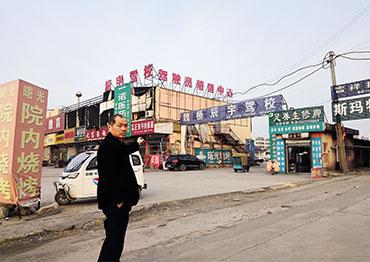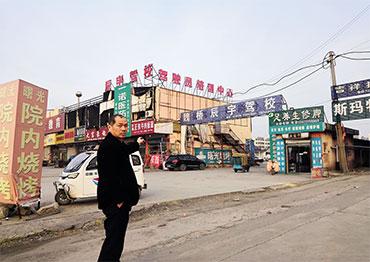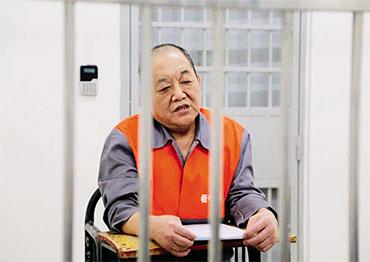That is why the public deplores “flies,” a term to describe low-level corrupt officials more than State-level corrupt “tigers,” as they deal directly with ordinary citizens and are harder to supervise.
“There aren’t really any checks and balances on village self-governance and the transparency, fairness and supervision the central government requires for rural governance exists only on paper,” Zheng Fengtian, a professor at the School of Agricultural Economics and Rural Development, Renmin University of China, told NewsChina.
His view echoes a People’s Daily article from 2015 following the CCDI’s report on corrupt village heads which pointed out that “village bullies” operate due to a lack of supervision.
“Some towns oversee more than 10 villages... higher departments don’t usually have enough personnel to supervise them properly. Besides, some villages are in the mountains, far from the town, making supervision even more difficult,” Chen Yupeng, a county-level Party secretary in Yunnan Province, told the Party paper.
Local supervision is near non-existent as villagers are unaware of their legal rights. This is sometimes by design. Some village officials, according to the People’s Daily report, forged government releases to misinform both villagers and more senior watchdogs.
A big reason is the flow of young rural dwellers to cities, Zheng said. “The ones that stay are mostly seniors who are neither physically strong nor educated enough to fight back against these ruffians,” he said. “So, public empowerment in those villages is next to nothing,” he added.
Zheng said that although every village has a mediation committee to resolve disputes, they are usually ineffective as few villagers dare stir up trouble, especially when their issues involve village officials.
Local law enforcement is also susceptible to village toughs.
Villager Wei Lijun recalled that Zhang Shixue once publicly claimed the local police station belonged to his son.
Many villagers alleged that a decade earlier, Zhang burned the village’s account books and beat other officials to prevent them from going public with the village’s annual expenditures.
“They [Zhang and his followers] stormed into the office with blades and clubs and beat anybody they saw... When I found that two account books and the official stamps were missing, I called the police. The local police chief came with another eight officers, but they didn’t stop the violence,” Cheng said. In the presence of the police, Zhang and his followers hit Cheng on the head and injured two other officials, Cheng added.
In 2017, law information portal jcrb.com exposed how a village Party secretary surnamed Liang in Guilin, Guangxi Zhuang Autonomous Region enacted vigilante justice against a villager surnamed Zhou who struck Liang’s wife in a car accident, killing her. According to the report, Liang and his posse seized Zhou and dug a pit in front of her grave, intending to bury him alive. Police were called to the scene, but Liang and his clan refused to comply. Given the size of his gang, the first batch of police officers protected Zhou by jumping into the pit with him until backup of 130 police officers arrived.
In 2016, Meng Lingfen, dubbed “China’s most powerful village committee director,” was sentenced to 20 years for seven crimes. Media reports described how Meng was tyrannical in wielding her power. She retaliated against any villager who opposed her, including destroying their orchards, harassing them over the village’s loudspeaker all day and illegally issuing fines. She had Hebei Television reporters seeking an interview beaten in the town’s government office.
The case showed that the town government could not deter Meng, let alone supervise her. After the case went public, netizens asked whether Meng had backing from higher-level officers.
A 2017 Xinhua News Agency report furthered these suspicions by condemning some higher officials for “colluding with and protecting village bullies.”
According to the CCDI report, Shi Fenggang was backed by several town officials from the local government, natural resources planning department and police.
“Some town governments are turning a blind eye to incapable or hostile village officials. Their connivance helped increase their power and even evolve into [criminal activity],” Li Zhengbin, secretary of Fengtai’s disciplinary inspection commission, told media after Shi’s misdeeds were exposed.

 Old Version
Old Version

